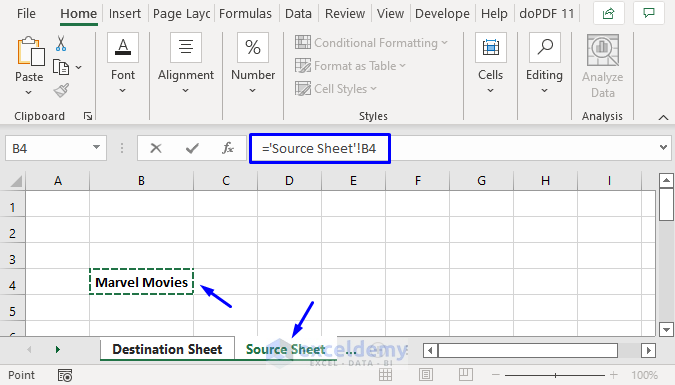Create Online Excel Sheet Links Easily

In the digital age, where collaboration is key to efficiency, tools that facilitate sharing and teamwork are indispensable. One such tool that has revolutionized this aspect for data analysts, accountants, project managers, and educators alike is the ability to create online Excel sheet links. This functionality allows for real-time data collaboration, making it a pivotal feature in Microsoft Excel's suite. In this comprehensive guide, we'll explore how to create, share, and manage online Excel sheet links, ensuring that you can collaborate effectively while maintaining control over your data.
Understanding Excel Sheet Links

An Excel sheet link is essentially a URL that provides access to a specific Excel workbook stored online. This URL can be shared via email, messaging platforms, or any means of communication, allowing others to view or edit the document based on the permissions you set.
Why Use Online Excel Sheet Links?

- Accessibility: Users can access the Excel sheet from any device with internet connectivity, promoting a work-from-anywhere culture.
- Collaboration: Multiple users can work on the same document simultaneously, with changes being updated in real-time.
- Control: Owners can manage who has viewing or editing permissions, ensuring data integrity and security.
- Simplicity: Sharing data becomes as simple as sending a link, eliminating the need for cumbersome file attachments.
Creating Online Excel Sheet Links

To create an online Excel sheet link, follow these steps:
- Upload Your Excel File: Navigate to the platform where you plan to store your Excel file online, such as Microsoft OneDrive, Google Drive, or SharePoint. Here's how:
- On OneDrive, sign in to your Microsoft account, and upload your Excel file by clicking the "Upload" button.
- On Google Drive, access it through your Google account, and click the "New" button then select "File Upload" to upload your Excel document.
- For SharePoint, if your organization uses it, find the site or library where you want to store your file and upload it.
- Generate the Link: After uploading your file, locate it in the folder, and follow these platform-specific steps:
- OneDrive: Right-click on the file, select "Share," then choose "Anyone with the link can edit/view." Copy the link provided.
- Google Drive: Right-click on the file, click "Get Link," set permissions, and copy the link.
- SharePoint: Click on the three dots next to the file, choose "Share," set the appropriate permissions, and copy the link.
- Customize Link Settings: Depending on the platform, you might have various settings to adjust:
- Set expiry date for the link
- Allow or restrict downloading and editing
- Password protect the link
💡 Note: When sharing through Microsoft services, if your account is associated with a business or educational institution, ensure that you have the necessary permissions to upload and share files.
Managing Permissions and Sharing

Once you've created the link, it's crucial to manage who can access the file:
Setting Permissions

- View Only: Users can only view the file, but not make changes.
- Can Edit: Users can view and edit the document, with changes saved automatically.
- Require Sign-in: Only users signed into specific accounts or part of your organization can access the file.
Sharing the Link

You can share the link in several ways:
- Email the link directly from the platform.
- Copy the link and send it through any communication method.
- Embed the link into a website or document for easy access.
| Platform | Sharing Options |
|---|---|
| OneDrive | Email, Embed, Direct Link |
| Google Drive | Email, Embed, Direct Link |
| SharePoint | Email, Permissions-based sharing, Direct Link |

Common Issues and Solutions

Link Expiration

- Ensure to set an expiry date for sensitive documents to prevent long-term unauthorized access.
Revoking Access

- Revoke or change permissions if you need to restrict access to previously shared links.
File Editing Conflicts

- Microsoft Excel’s co-authoring feature helps resolve editing conflicts, but occasionally, users might encounter issues. Ensure you communicate changes effectively with collaborators.
Security Concerns

- Limit edit access to trusted users or use password protection for sensitive files.
In summary, creating and managing online Excel sheet links is pivotal for efficient collaboration in today's digital workspace. By understanding how to set up, share, and control access to these links, you unlock a world of possibilities for collaborative work, real-time updates, and secure data sharing. Whether you're working within a small team or managing large-scale projects, these tools can streamline your processes, reduce errors, and foster better communication among team members. Embrace the power of Excel sheet links to transform your data management and collaboration strategies, enhancing productivity and data integrity in the process.
Can I share an Excel link with people outside my organization?

+
Yes, platforms like OneDrive and Google Drive allow you to share files with anyone, even if they’re not part of your organization, by selecting “Anyone with the link” options. However, ensure you have the right permissions to do so if your account is organizationally managed.
How do I know if someone has edited the shared Excel sheet?

+
Excel’s co-authoring feature automatically notifies you of changes, and you can view who made which edits by looking at the version history or the comment system if enabled.
What happens if I delete the Excel file after sharing it?

+
Deleting the file will result in the link becoming invalid. However, some platforms might retain a copy in the trash or recycle bin from which it can be restored if needed.
Can I set an expiry date for the link?
+Yes, on platforms like OneDrive or SharePoint, you can set an expiry date for shared links, allowing you to manage access more dynamically.
How secure are these links for sensitive data?
+Security largely depends on the platform’s settings. For sensitive data, use password protection, limit editing permissions, and set link expiration. Additionally, enable multi-factor authentication if possible.



